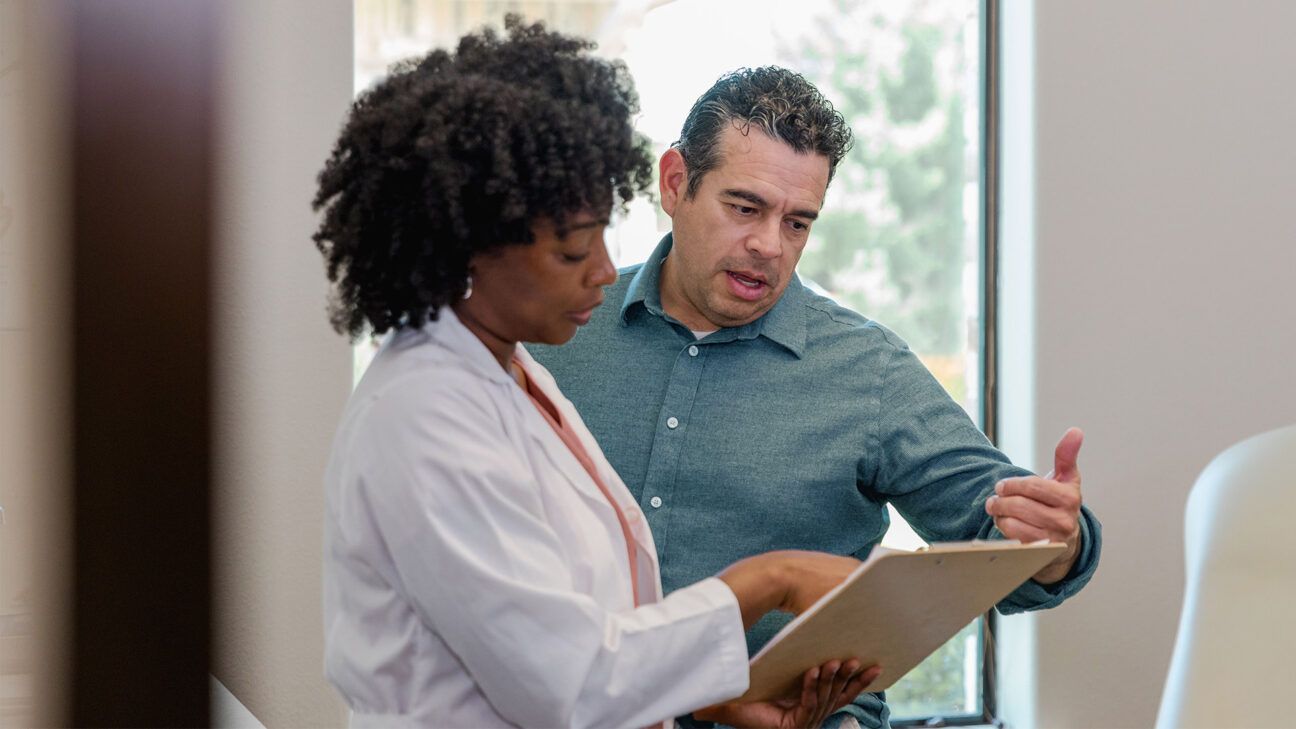
- People with type 2 diabetes had a higher risk of developing colorectal cancer, according to a new study.
- The study included mostly African Americans with low socioeconomic status.
- In the U.S., Black adults have higher rates of both type 2 diabetes and colorectal cancer.
People diagnosed with type 2 diabetes have a higher risk of colorectal cancer, according to a new study that consisted mostly of Black adults in the United States with low socioeconomic status.
Of the over 54,000 participants, those with a diabetes diagnosis were 47% more likely to develop colorectal cancer, compared to those without diabetes.
This study has “real implications for African Americans, who already have very high incidence of colorectal cancer, absent diabetes,” said Dr. June M. McKoy, professor of Medicine, Preventive Medicine and Medical Education at Northwestern University Feinberg School of Medicine.
Black adults in the United States have higher rates of both colorectal cancer and diabetes, compared to white people and Hispanics/Latinos, according to the Centers for Disease Control and Prevention.
In the new study, the risk of colorectal cancer was even higher in certain participants with diabetes:
- Those who had not undergone colonoscopy screening had more than double the risk of colorectal cancer than those without diabetes
- Those with a history of smoking had a 62% greater risk of colorectal cancer compared to those without diabetes
- Those with a recent diabetes diagnosis (within the previous 5 years) were two-and-a-half times more likely to develop colorectal cancer than those with an earlier diabetes diagnosis (5 to 10 years earlier)
The results highlight the importance of colorectal cancer screening in identifying cancer in people at higher risk, the researchers wrote November 14 in JAMA Network Open.
This includes screening that occurs as a result of being diagnosed with diabetes.
“Increased interactions with the health care system following a diabetes diagnosis, including increased referrals to [colorectal cancer] screening, may be important for mitigating the harm of diabetes-related metabolic dysfunction, particularly in early diabetes, on [colorectal cancer] risk,” the researchers wrote.
Blood sugar drives cancer
McKoy said the link between diabetes and colorectal cancer is thought to be due to elevated blood glucose (sugar) in people with diabetes, which supports the growth of tumor cells.
“In addition, elevated insulin [in the blood in diabetes] helps to drive glucose into tumor cells, and actually helps to activate the growth of these tumors,” she told Healthline.
“In essence, the high levels of insulin and sugar create an environment in the colon that allows cancer to grow more easily,” she said.
In the new study, researchers used data from 54,597 people taking part in the U.S.-based Southern Community Cohort Study who were recruited from 2002 to 2009.
Participants completed three follow-up surveys by 2018, during which they reported whether they had received a diabetes diagnosis from a doctor.
Two-thirds of participants were Black and more than half had an annual income of less than $15,000. The average age of people in the study, at time of enrollment, was 51 years and almost two-thirds were female.
Researchers found that body mass index (BMI) did not change the link between diabetes and colorectal cancer, which is consistent with previous research.
One limitation of the study is that researchers relied on people to report whether they had a diabetes diagnosis rather than using medical records or a separate blood test.
Disparities in health care
Another limitation of the study — and diabetes research in general, said the researchers — is that some participants may have had undiagnosed diabetes, which may have affected the results.
This is particularly relevant to this study, because some research has found that people with low socioeconomic status are more likely to have undiagnosed diabetes.
McKoy said African Americans have traditionally lacked access to healthcare, including early interventions and newer diabetes testing equipment.
She recommends that African Americans diagnosed with diabetes talk to their doctor or diabetes educator about the importance of managing their blood glucose levels and the impact of diabetes on colorectal cancer.
In addition, she said African American patients with diabetes should get a screening colonoscopy starting at age 45 and, if the first scan is normal, every 10 years afterward.
This is also the standard recommendation for people without diabetes. People with an increased risk, such as a strong family history of colorectal cancer, might need to start colorectal screening earlier than age 45.
If there are pre-cancerous polyps, people should be screened every 3 to 5 years afterward, or as advised by their gastroenterologist and/or their primary care physician, said McKoy.
Regular screening and early intervention can improve a person’s outcomes.
“Colon cancer grows from small grape-like structures called polyps,” said McKoy, “and if pre-cancerous polyps are found early during screening colonoscopy and removed, they will not grow into cancer.”
Takeaway
In a study that consisted mostly of African Americans with low socioeconomic status, people with a diagnosis of type 2 diabetes had a higher risk of developing colorectal cancer, compared to those without diabetes.
Some people with diabetes had an even higher risk, including those who had not undergone a screening colonoscopy, a history of smoking, or with a recent diabetes diagnosis.
Experts recommend that people with diabetes manage their blood glucose levels, because elevated blood glucose may drive the growth of cancer cells. Regular colorectal screening is also recommended starting at age 45, or earlier for those at higher risk.
Having Type 2 Diabetes Increases the Risk of Colorectal Cancer
Source: Pinoy Lang Sakalam



0 (mga) komento:
Mag-post ng isang Komento